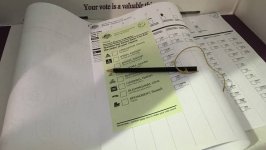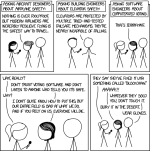lpetrich
Contributor
DCCC Chair Maloney produces report on why Democrats lost seats in 2020 - The Washington Post
In one of 3 very competitive races of IA, infrequent voters as pcts of the total electorate:
In a South Florida district,
"Maloney says the biggest strategic mistake was devoting so much money to trying to win GOP-held seats, believing their first-term incumbents who delivered the majority in 2018 were safe."
As a result, 6 D's of 2018 lost by less than 1.5%
"Polling missed the Trump surge at the very end." -- seems like there were a lot of shy Trumpies, much like shy Tories in the UK.Maloney laid out how Democrats simply underestimated the number of hardcore Trump voters and, with more Trump voters in the voting booths, the Republican attacks against the “defund the police” movement proved more potent than Democrats ever anticipated.
“The lies and distortions about defund and socialism carried a punch, but the Republicans think it got them over a 10-foot wall, when Trump’s turnout gave them a seven-foot ladder,” Maloney said in 45-minute interview, exclusively outlining what he calls the “Deep Dive” into the election.
In one of 3 very competitive races of IA, infrequent voters as pcts of the total electorate:
- Polled: D 5%, R 4%
- Actual: D 4.7% R 5.9%
In a South Florida district,
- Polled: D 38% R 33%
- Actual: D 34% R 36%
In other words, shy Trumpies.Maloney said his side has to get better at understanding how Trump’s voters do not respond to pollsters at the same rate as other voters.
“That creates what we call a systemic nonresponse bias, which is a mouthful. That’s a fancy way of saying the real Trump supporters don’t like talking to pollsters,” he said.
"Maloney says the biggest strategic mistake was devoting so much money to trying to win GOP-held seats, believing their first-term incumbents who delivered the majority in 2018 were safe."
As a result, 6 D's of 2018 lost by less than 1.5%
Though Democrats raised a lot of money, more than the Republicans, they found that much of it went into TV ads late in the campaign, with little benefit.“This is about acknowledging Democrats have work to do when it comes to communicating with communities of color, especially as we learn to better differentiate between the needs and concerns of the diversity that exists within our communities,” said Williams, who won the seat of the late Rep. John Lewis (D) in November.
What AOC said some months back - lack of digital outreach, the sort of campaigning that she herself has done.That played out in Texas, Florida and California, where Democrats flamed out as their campaigns did not connect with key voter constituencies such as Latino and Asian American voters.
“We are still overweighted on old media, and we need to invest more in organizing and in digital. I would rather invest in the next Stacey Abrams or a real organizing strategy for the Rio Grande Valley,” Maloney said, referring to the Georgia political figure.


